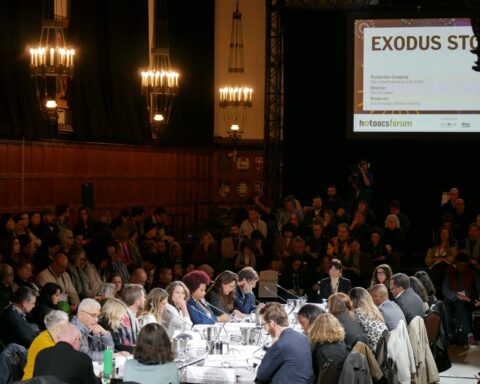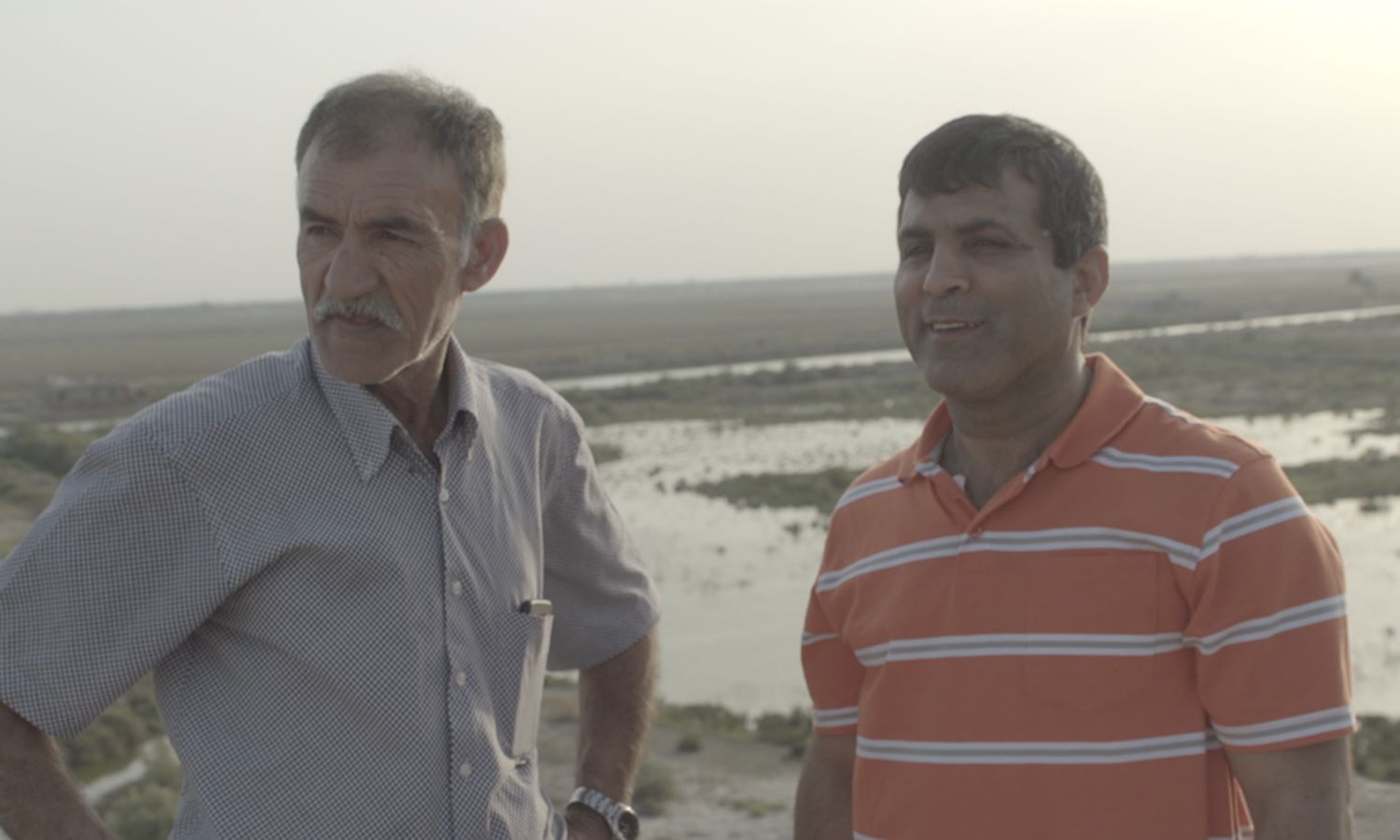For over a decade, TIFF international documentary programmer and DOCNYC founder Thom Powers has been methodically growing his visibility not only as a curator, but also as a sort of guru to those who wish to learn about the business of non fiction filmmaking. Capitalising on the success of the industry panels at DOCNYC, the Festival (now in its 7th year), Powers hosted its first standalone Marketing Bootcamp at NYC’s IFC Center on April 13.
To call the all day event a good bang for a buck would be a gross understatement. It was possibly the best value a filmmaker in search of marketing guidance could ask for. For the astonishingly low price of $75 U.S ($65 for IFC members), the 150 or so gathered “makers” eagerly consumed presentations on grassroots marketing and distribution, public relations, social media, crowdfunding, editing a trailer, creating partnerships and ancillary revenue streams-–“Earn Income From Lectures!” The event concluded with a play-by-play of the marketing strategy for Raoul Peck’s Oscar nominated I Am Not Your Negro, with Magnolia Picture’s George Nicholis.
Deborah Rudolph, Director of Development/DOC NYC Pro Producer explained, “We wanted to offer greater opportunity for professional growth during the year. We gathered the top professionals in the documentary business to share their insights and vital knowledge of film marketing that’s difficult to find. We’ve been fortunate to have worked with many of them previously at DOC NYC and their expertise and mastery in each of their particular niches is quite extraordinary.”
Supersize Me’s Morgan Spurlock got the event off to (a literally) roaring start with a rapid fire, Tony Robbins-style pep talk: “Now is the best time in history to be a storyteller! Money and distribution are secondary! You have to decide what stories to tell! Don’t be afraid to do things that are crazy!” He also reminded those gathered: “Finding a good story is only the beginning, getting to an audience is the accomplishment. Financing and marketing are not separate,” and documentary filmmakers need to “think about owning derivative space and owning derivative impact.”
Among the day’s many bon mots:
Liz Cook, Director of Documentary Film, Kickstarter: “Make it more than a film. Rewards deepen an audience’s relationship with a film. Build your community” and “Facebook is more effective on Kickstarter than Twitter.” BTW: One in every ten people who donate to a Kickstarter campaign, fund a documentary film!
Social Media Strategist Kristin McCrake: “Create memes, photos w/text, stills w/quotes, GIFs, give people insider access, keep it fresh—update, update, update!” However, “slow and steady wins the race.”
Caitlin Boyle, Founder, film distributor Film Sprout on grassroots marketing: “Audiencing is a verb, not a noun.” “See an audience as an active part of the process.” Seek audience “engagement rather than transaction.” Form a more direct relationship with audiences through: “Access, agency, action.” Pay attention to “psychographics” rather than “demographics.”
Christie Marchese, CEO, Picture Motion (13th, Lion) on leveraging partnerships and crafting impact marketing campaigns: Choose “…audience acquisition partners. These people have been involved in their causes a lot longer than you. You have to sell your value.” Caveat: Typically (non-profit) organisation partnerships are established while a film is in post-production—-when you know where a story is going.
Susan Norget, Susan Norget Film Promotion on public relations: “I’m always thinking about the audience, press, marketing. Filmmakers need an objective, outsider perspective. What’s really going to resonate with people.” “Tap into the news cycle. If you are making an issue driven film, keep track of all the press people. Build a List.”
For those interested in learning how to get a film booked into a festival (a topic not specifically addressed during the Marketing Bootcamp), on May 9, Thom Powers will be the guest for a webinar hosted by Women Make Movies to explain that very subject.












